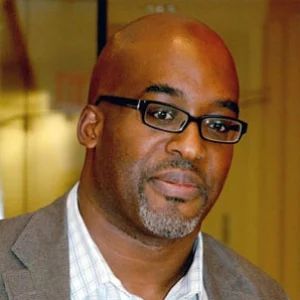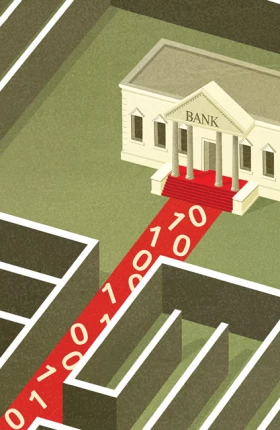The future of retail banking starts with the customer. More people are demanding simple, trustworthy products and services from financial institutions—or other companies offering similar services—that put them first. They want seamless digital banking solutions embedded in their daily lives. The combination of these expectations and technology-enabled solutions is fundamentally challenging the advantages of traditional banks (such as branch networks, trust, loyal customer bases, and proprietary data) and opening opportunities for newcomers.
One result is an almost gravitational pull away from vertical integration and toward a platform-based or “stacked” industry structure. Battle lines are being redrawn at multiple layers of the stack, and the race for relevance and scale among banks and between banks and new entrants has begun.
For incumbent banks, this shift will undermine the advantages of integrated value chains as differing economies of scale by layer of the banking stack drive the emergence of new business models. At each layer of the stack, technology enables the modularization of services and challenges the integrated universal-banking model.
The new playing field requires new capabilities. These include the ability to continually create relevant solutions for customers, extract substantially greater value from data and analytics (the basis for personalization in banking), reach beyond traditional geographic borders, and integrate with partners and ecosystems—all while continuing to comply with tough requirements from customers and regulators for institutional security and good conduct. Banks that don’t move quickly risk losing relevance with consumers, especially younger ones, who are the primary drivers of future growth and market share.
The transition to a stacked industry is occurring at an ever-increasing speed.
This transition is occurring at an ever-increasing speed, which means that retail banks must rethink their positioning and business models. We see four new or modified models that are viable in a stacked world and suited for incumbents: digitized full-service banks, open banks, ecosystems, and product engines. (Of course, traditional banks can also consider entirely new, purely digital growth models in parallel with changes to the core business.)
The pace and shape of disruption will differ by market. In some, it’s likely that incumbents will lead banking in the future. In others, incumbents will consolidate as challengers gain share. In others still, ecosystems will win big by taking over customer interfaces and relationships, and incumbent banks will morph into utilities.
Precisely how banks should respond depends on where they stand today. Some incumbents must first build a viable digital foundation. More-advanced institutions can select their model and strategy and invest decisively in the capabilities they’ll need to build relevance and scale going forward.
We explore all these changes and their ramifications in our 2019 report on global retail banking.















